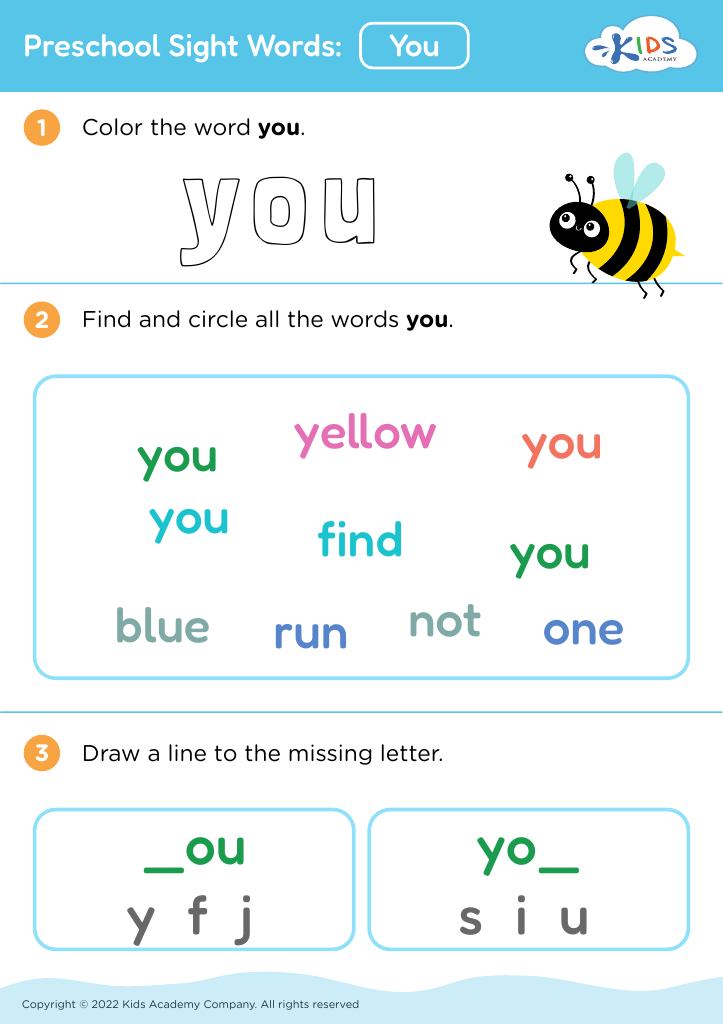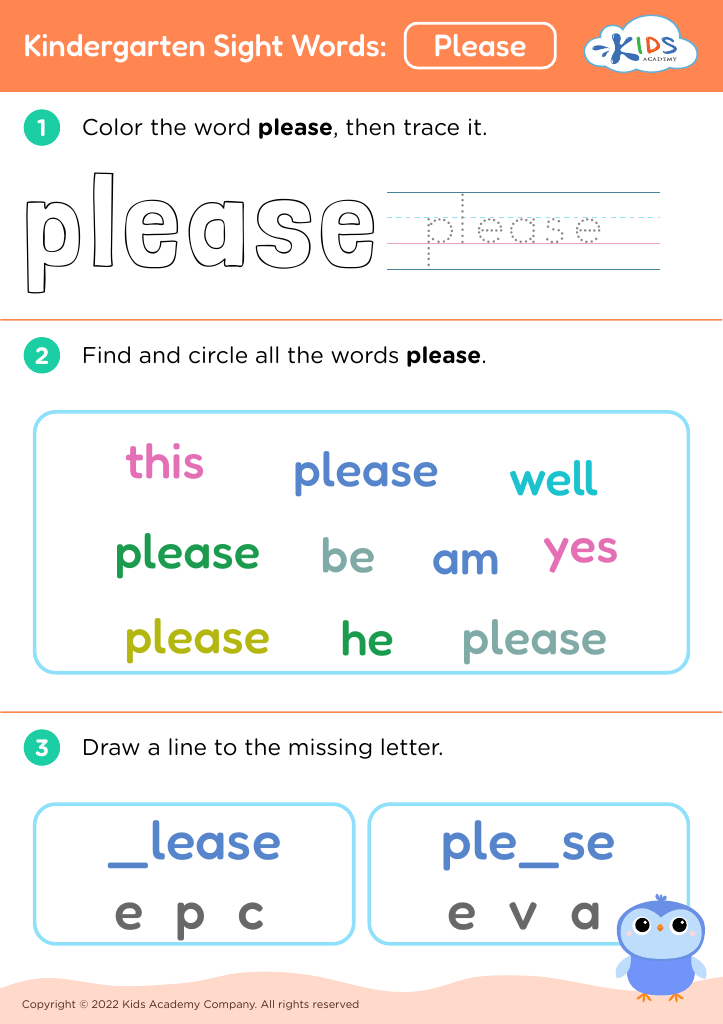Understanding prepositions Building Vocabulary Worksheets for Ages 4-9
5 filtered results
-
From - To
Boost your child's linguistic abilities with "Understanding Prepositions Building Vocabulary Worksheets for Ages 4-9". These engaging worksheets are designed to help early learners master prepositions through fun, interactive activities. Catering to children ages 4 to 9, our worksheets cover essential skills in recognizing and using prepositions to build a strong vocabulary foundation. Each worksheet is crafted by educational experts to ensure that learning is both effective and enjoyable. Perfect for both classroom usage and at-home practice, these printable resources will support your child's language development and advance their understanding of prepositions. Explore our collection today!
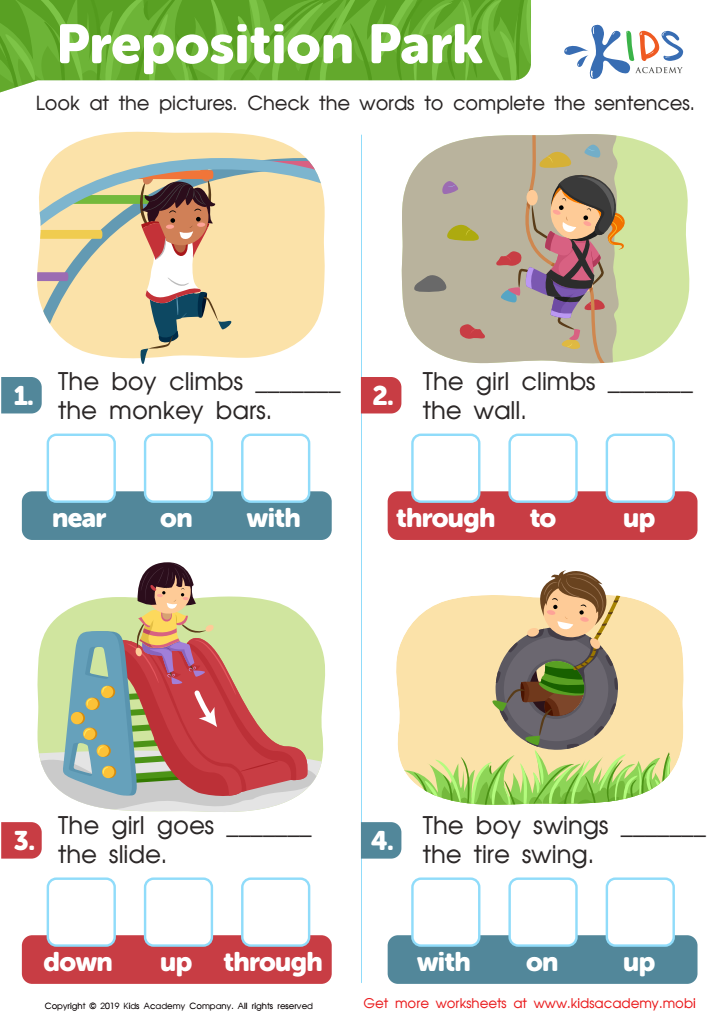

Preposition Park Worksheet
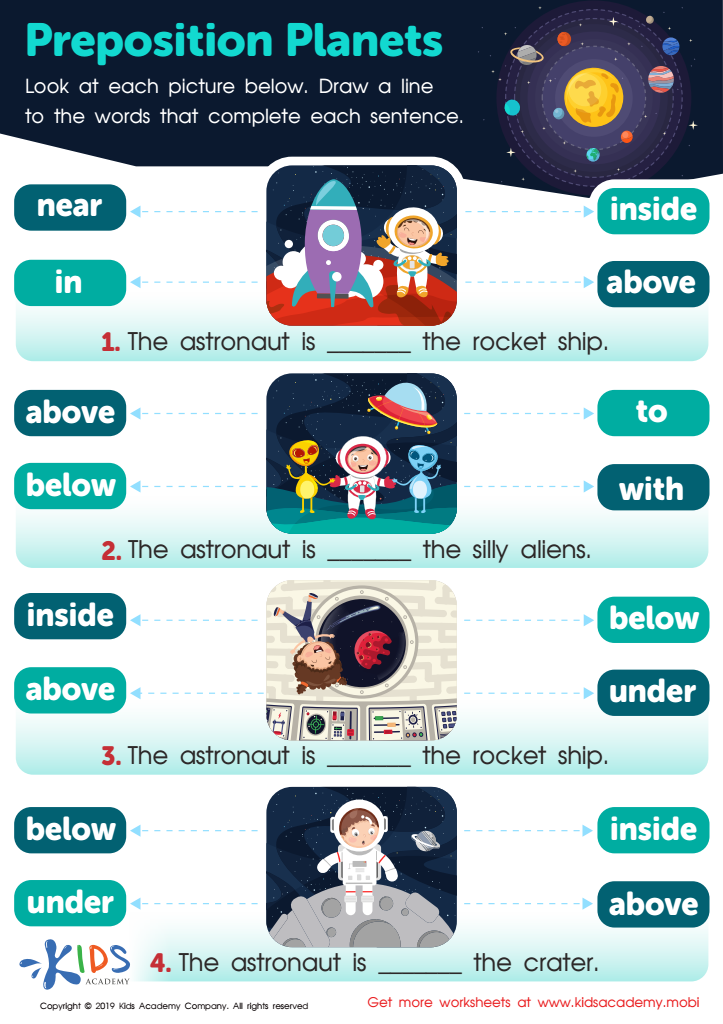

Preposition Planets Worksheet
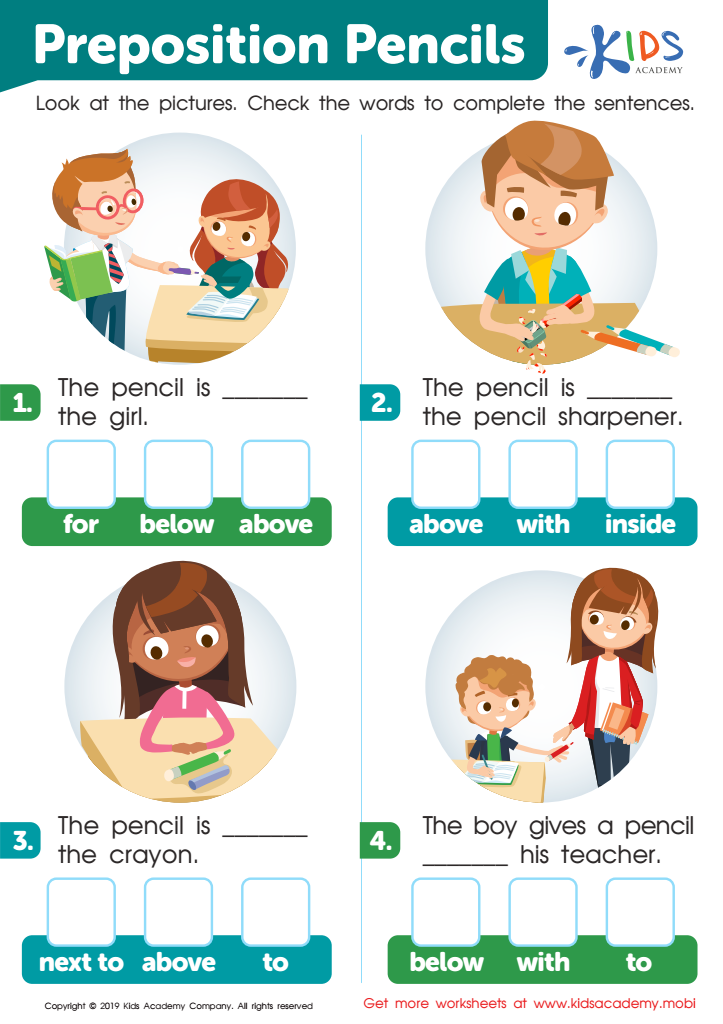

Preposition Pencils Worksheet
Understanding and building vocabulary, especially with prepositions, is fundamental for children aged 4-9. Prepositions, which describe relationships between objects, people, or locations (like "in," "on," "under," "between"), are essential for clear communication and language development. When children grasp prepositions, they can accurately describe scenes and contexts, enhancing their ability to express themselves.
From a developmental perspective, a rich vocabulary lays the foundation for reading comprehension and writing skills. Children with a solid vocabulary are better equipped to understand and engage with texts, facilitating academic success in later years. This age range is a critical period for language acquisition, and meaningful interactions using diverse vocabulary support cognitive development and critical thinking skills.
Moreover, vocabulary growth fosters social skills. As children learn and use new words, they can share their thoughts and interact more effectively with their peers and adults. This boosts their confidence and helps build relationships, which are vital for social development.
Lastly, an expanded vocabulary opens the doors to curiosity and exploration. Children begin to notice and question the world around them, which is integral to fostering a lifelong love of learning. Therefore, parents and teachers should prioritize vocabulary building to support holistic development in young children.
 Assign to My Students
Assign to My Students










